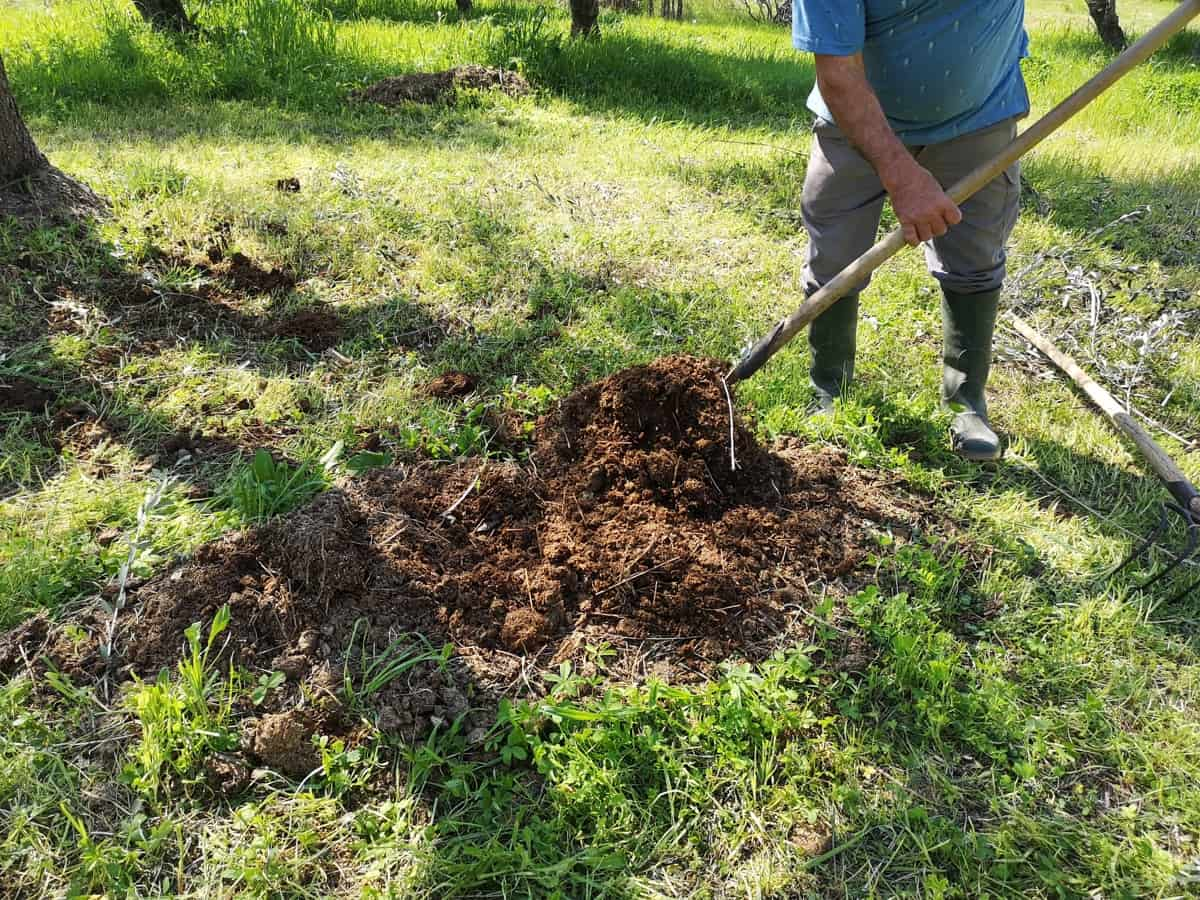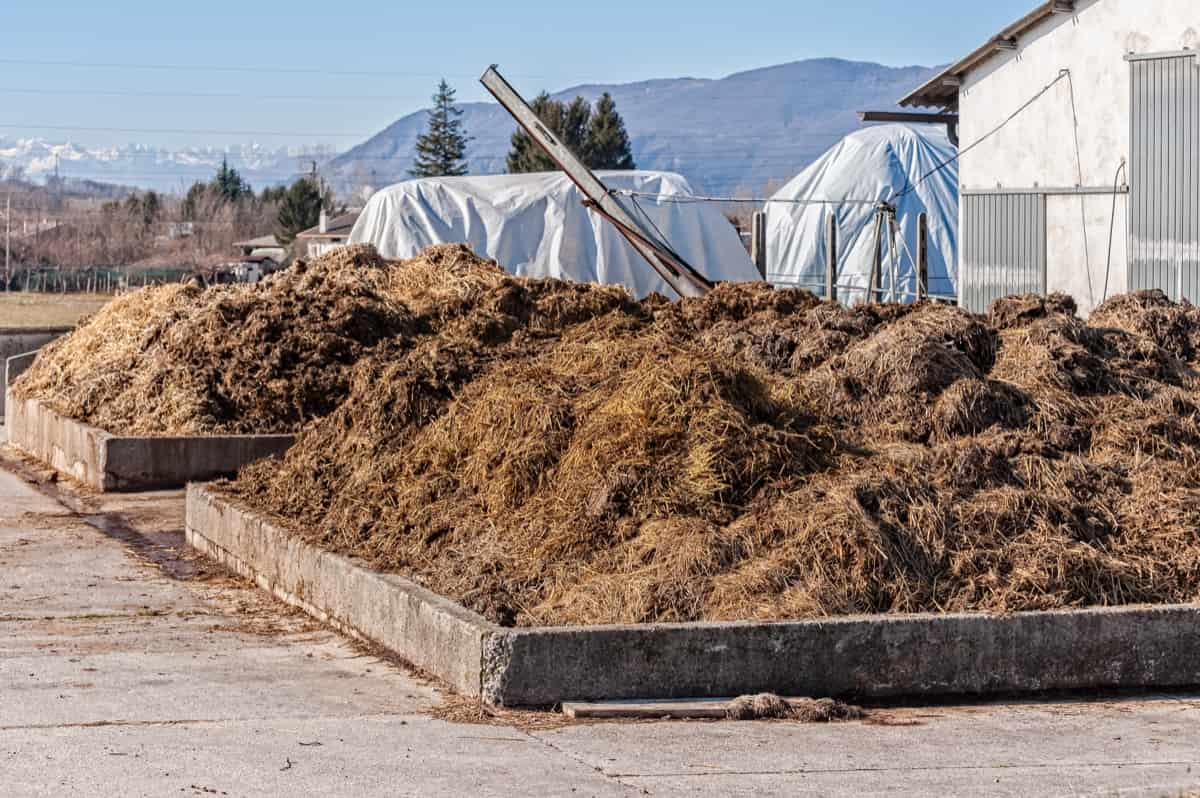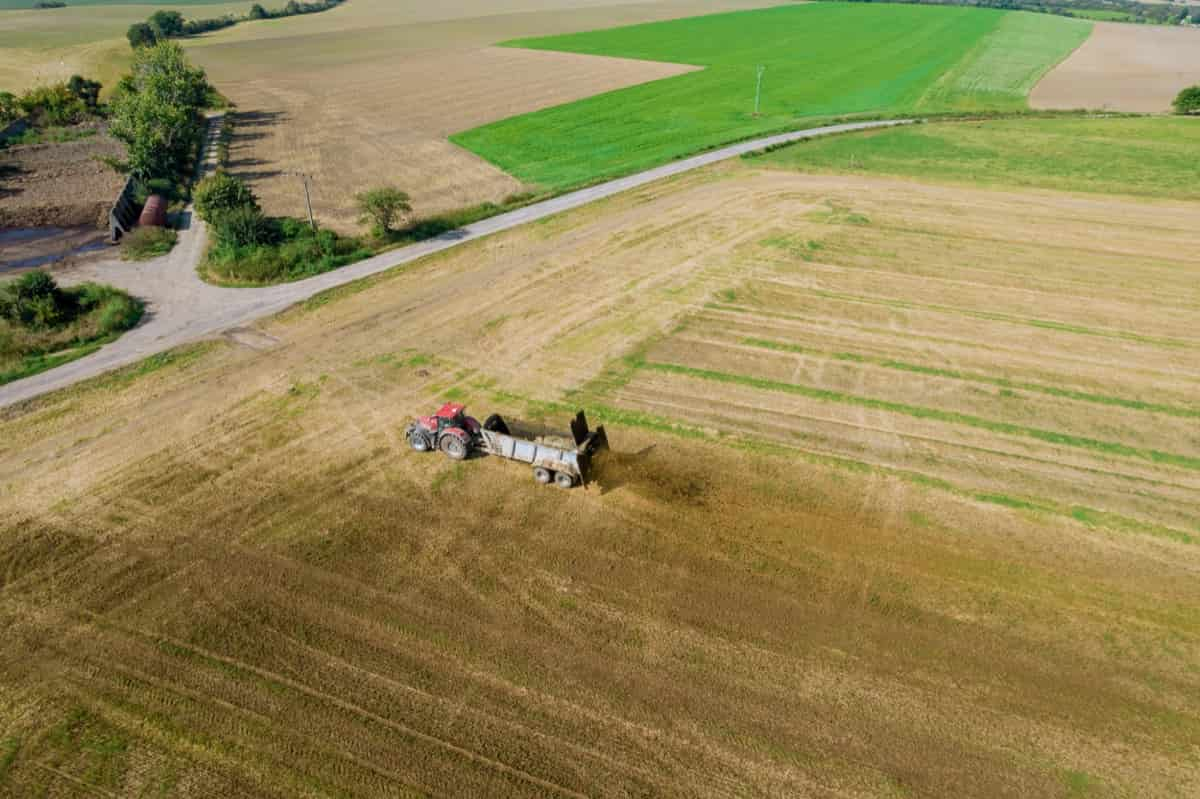Livestock manure has been used for centuries as a valuable resource in farming practices. Livestock manure contributes to improved soil structure and moisture retention capabilities. This moisture-retaining capacity benefits plant survival in drought-prone regions or during dry spells.

Benefits of Livestock Manure in Agriculture
Enhanced Soil Fertility Through Livestock Manure
Livestock manure is a valuable resource that can greatly enhance soil fertility and improve the overall health of agricultural land. When properly managed and applied, livestock manure provides essential nutrients to the soil, promoting robust plant growth and increased crop yields. It contains essential elements like nitrogen, phosphorus, potassium, and micronutrients vital for plant growth.
These nutrients are released slowly over time as the organic matter in the manure decomposes, providing a steady supply of nourishment to crops. In addition to its nutrient content, livestock manure improves soil structure by enhancing its ability to hold moisture. This helps prevent water runoff and erosion while allowing plants access to adequate water for their growth.
The organic matter in the manure also acts as a natural fertilizer by improving soil tilth and texture. Furthermore, the importance of livestock manure in agriculture land promotes microbial activity in the soil. Incorporating livestock manure into agricultural practices enhances soil fertility naturally without compromising long-term sustainability.
Increased Crop Yields with Livestock Manure
- Livestock manure is not only beneficial for enhancing soil fertility, but it also has a significant impact on increasing crop yields.
- When used as a natural fertilizer, livestock manure releases nutrients slowly into the soil over time, ensuring a steady supply of nourishment to crops throughout their growing season.
- In addition to providing essential nutrients, livestock manure is a natural source of beneficial microorganisms. These microorganisms help break down organic matter in the soil, making nutrients readily available to plants.
- By applying livestock manure in agriculture as a sustainable alternative to synthetic fertilizers, farmers can reduce their reliance on chemical inputs while still achieving high crop yields. This leads to cost savings for farmers and contributes to environmental sustainability by minimizing pollution risks associated with excessive fertilizer use.
Sustainable Nutrient Cycling Using Livestock Manure
Livestock manure is a valuable resource that can greatly contribute to sustainable nutrient cycling in agriculture. When properly managed, livestock manure can provide essential plant nutrients while reducing the need for synthetic fertilizers. Moreover, using livestock manure as fertilizer reduces reliance on synthetic alternatives.
Synthetic fertilizers are typically manufactured from non-renewable resources such as fossil fuels and require significant energy inputs during production. Farmers can lower their carbon footprint and contribute to more sustainable farming practices by substituting them with readily available livestock manure. Furthermore, sustainable nutrient cycling through livestock manure application promotes biodiversity and ecosystem health on farmland.
As organic matter increases in the soil due to regular animal waste applications, beneficial microorganisms thrive alongside earthworms and other beneficial organisms. This creates a balanced ecosystem where pests are naturally controlled without the need for harmful chemical pesticides.
In case you missed it: Homemade DIY Farmyard Manure Soil Fertilizer: Recipe for Organic Benefits of Plants

Improved Soil Structure and Moisture Retention with Livestock Manure
Livestock manure is beneficial for enhancing soil fertility and promoting crop growth, but it also plays a crucial role in improving soil structure and moisture retention. This natural resource can enhance the physical properties of soil, creating a more favorable environment for plants to thrive. The organic matter acts as a binding agent, helping to bind particles and larger aggregates within the soil.
These aggregates help to improve overall soil structure by increasing pore spaces and allowing better air and water movement. In addition to improved structure, livestock manure also aids in moisture retention. The organic matter in manure acts like a sponge, absorbing excess water during high rainfall and releasing it slowly during dry spells. This helps prevent waterlogging and drought stress in plants, ensuring they can access adequate moisture when needed.
Reduced Need for Synthetic Fertilizers with Livestock Manure
Incorporating manure into the soil makes these nutrients available to crops, promoting healthy and robust growth. Moreover, unlike synthetic fertilizers that can leach into water bodies and contribute to pollution, livestock manure releases nutrients slowly over time. This slow-release mechanism ensures that plants receive a steady supply of nutrients throughout their growth cycle without causing excessive nutrient runoff or contamination. Additionally, livestock manure improves soil health by enhancing its structure and increasing organic matter content.
This leads to improved water retention capacity and better overall soil fertility. As a result, crops grown in soils amended with livestock manure are more resilient to drought conditions and have higher yield potential. Utilizing livestock manure as an alternative to synthetic fertilizers brings numerous benefits – from enhanced crop yields to improved soil health – making it a sustainable choice for farmers looking towards environmentally-friendly agricultural practices.
Organic Farming Advantages of Livestock Manure
- Using livestock manure in organic farming helps to improve soil health and fertility. The nutrients present in the manure are essential for plant growth and development.
- In addition to providing essential nutrients, livestock manure enhances soil microbial activity. Microorganisms are crucial in breaking down organic matter and releasing nutrients for plant uptake. With increased microbial activity comes improved nutrient availability for crops.
- Furthermore, utilizing livestock manure reduces reliance on synthetic fertilizers. Organic farmers can minimize their ecological footprint by using natural sources like livestock manure instead while still achieving optimal crop yields.
Enhanced Microbial Activity in Soil with Livestock Manure
The increased microbial activity stimulated by livestock manure has several benefits. It improves crop nutrient availability, ensuring optimal growth and development. Additionally, these microorganisms play a vital role in decomposing organic matter further, which helps improve soil structure and water-holding capacity.
Moreover, enhanced microbial activity promotes symbiotic relationships between beneficial microbes and plant roots. This improves nutrient uptake efficiency and enhances plant resistance against diseases and pests.
Cost-effective Soil Amendment: Livestock Manure
Livestock manure is not only beneficial for soil fertility and crop yields, but it also offers a cost-effective solution for farmers. Compared to synthetic fertilizers, livestock manure can be obtained at a lower cost or even free. Farmers with their livestock can easily collect and use the manure their animals produce, eliminating the need to purchase expensive chemical fertilizers.
Furthermore, livestock manure acts as a natural fertilizer that slowly releases essential nutrients into the soil over time. Farmers do not have to reapply it as they would with synthetic fertilizers frequently. By using livestock manure as a soil amendment, farmers can save money on costly inputs while still maintaining healthy soil conditions.
Minimized Soil Erosion with Livestock Manure Application
Livestock manure enhances the structure of the soil, making it more resistant to erosion. It improves aggregation, allowing for better water infiltration and reducing surface crusting. L livestock manure effectively protects against wind and water erosion by strengthening soil structure. In addition to preventing erosion directly, livestock manure also promotes vegetation growth. The nutrients present in manure nourish plants, enabling them to develop strong root systems that help anchor the soil in place.
In case you missed it: How and When to Apply Organic Vermicompost Fertilizer Manure: For Your Indoor, Terrace, and Container Plants

Promoting Biodiversity and Ecosystem Health with Livestock Manure
Using livestock manure in agriculture also plays a crucial role in promoting biodiversity and ecosystem health. The rich nutrients in livestock manure attract beneficial insects, earthworms, and microorganisms that contribute to soil health. Moreover, incorporating livestock manure into agricultural practices reduces reliance on synthetic fertilizers and pesticides. Promoting biodiversity through environmentally friendly practices ensures our agricultural systems are resilient to changing climates and external pressures.
Conclusion
Livestock manure, a valuable byproduct of animal farming, offers numerous benefits for agriculture. Its use as a natural fertilizer enhances soil fertility, promotes sustainable nutrient cycling, and increases crop yields. Additionally, livestock manure improves soil structure and moisture retention, reducing the need for synthetic fertilizers.
- Feed Your Flock for Less: Top 10 Tips to Save on Chicken Feed
- Ultimate Guide to Ossabaw Island Hog: Breeding, Raising, Diet, and Care
- Hatching Answers: The Top 10 Reasons Your Chickens Aren’t Laying Eggs
- Eggs and Economics: Breaking Down the Cost of Raising Backyard Chickens
- Defend Your Greens: Proven Methods to Keep Iguanas Out of Your Garden
- Ultimate Guide to Cinnamon Queen Chicken: A Comprehensive Guide for Beginners
- Ultimate Guide to California Tan Chicken: Breeding, Raising, Diet, Egg-Production and Care
- Ultimate Guide to Marsh Daisy Chicken: Breeding, Raising, Diet, and Care
- 10 Types of Chicken Farming Businesses You Can Start for Profits